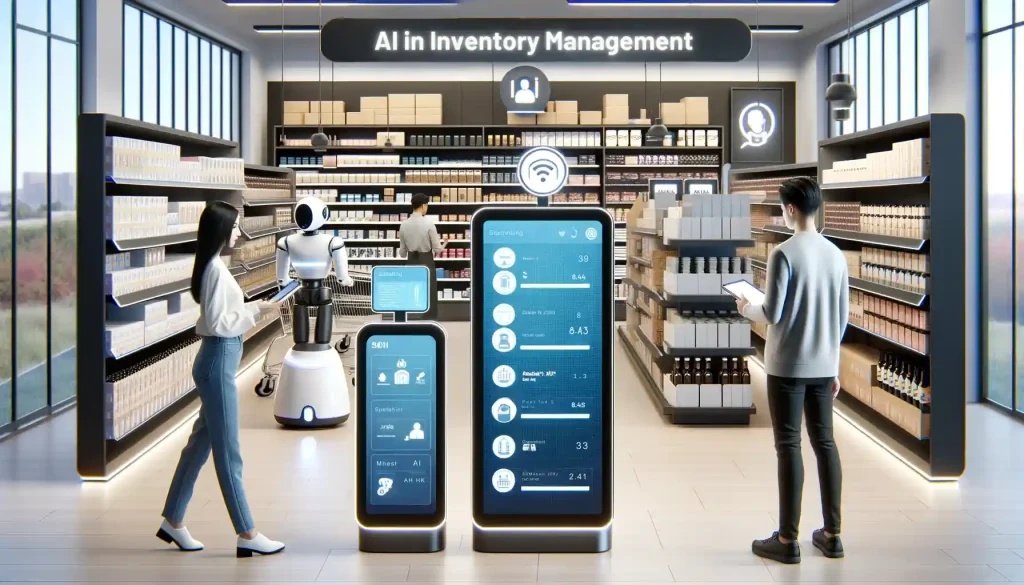AI-Powered Inventory Management for Retail
Discover how AI revolutionizes retail inventory management with automation, demand forecasting, and real-time monitoring for efficiency and growth.
Discover how AI revolutionizes retail inventory management with automation, demand forecasting, and real-time monitoring for efficiency and growth.

Artificial Intelligence (AI) is revolutionizing inventory management in the retail sector by automating repetitive tasks and enhancing decision-making processes. AI-powered systems can analyze vast amounts of data to optimize stock control, forecast demand, and streamline supply chain operations.
This technology enables retailers to maintain optimal inventory levels, reduce costs, and improve overall operational efficiency.
AI algorithms can analyze real-time data such as sales, returns, and inventory levels to automatically reorder products or adjust stock allocations. This automation minimizes human error and ensures optimal inventory levels.

Additionally, AI-powered warehouse robots can autonomously locate, sort, and inspect items, eliminating errors and speeding up shipments.

AI excels at analyzing large datasets to provide precise demand forecasts, reducing the likelihood of stockouts or overstocking. By incorporating historical sales data, market trends, and external factors, AI can predict future customer demand with remarkable accuracy.

For example, Walmart uses AI to predict which products will be in demand during specific seasons, allowing for better stock planning.
AI-enabled systems can provide real-time visibility into inventory levels across multiple channels. This capability allows retailers to quickly respond to changes in demand and adjust their inventory accordingly.
Some retailers are even implementing AI-powered shelves that can scan themselves, reorder products, and track freshness, ensuring shelves remain stocked and reducing waste.

To leverage AI effectively, retailers must integrate data from various sources, including point-of-sale systems, warehouse management systems, and customer relationship management platforms.
AI algorithms can then analyze this data to identify patterns, trends, and opportunities for optimization.
Retailers should carefully evaluate AI-powered inventory management solutions to find ones that best fit their specific needs. Key features to look for include demand forecasting capabilities, real-time analytics, and integration with existing systems.
Successful implementation of AI in inventory management requires proper training for staff and a culture that embraces data-driven decision-making.
Retailers should invest in educating their teams on how to interpret and act on AI-generated insights.
As AI technology continues to advance, we can expect even more sophisticated applications in retail inventory management. Future developments may include:

By embracing AI-powered inventory management solutions, retail businesses can stay competitive in an increasingly dynamic market, improve customer satisfaction, and drive long-term growth.
As the technology evolves, those who adapt early will be best positioned to reap the benefits of this retail revolution.